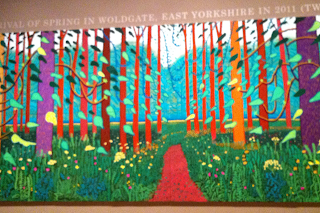While we were awaiting the results of the Summer speech and drama course I reflected on the work we did, the students we worked with and their achievements .
We worked with students as young at 6 and spent ten days encouraging them, taking them to the woods and playing Grandmother's footsteps, hiding behind trees, having fun. We got them to perform their pieces on the race track, infront of a beautiful lake, on a bridge. So many were inspired by the Olympics, telling stories that reflected the origins of the games in Greece. They researched, bought in books, challenged themselves and each other and ultimately created some stunning pieces of theatre.
Everytime I teach theses courses, I am stunned by how creative our young people can be. The joy they find in Shakespeare, in rehearsing, discovering and performing is beautiful.
Many of our students received their A level results on the same day as they took their exams - an amazing and exciting day full of tears, tensions and achievements. (they all got in to their chosen Uni)
Our results came out this week and they were wonderful, everyone gained merit or above with a few getting almost 100%. Whatever marks they got, I know the ultimate gift has been new friendships forged, a boost in confidence and the gift of laughter.






















